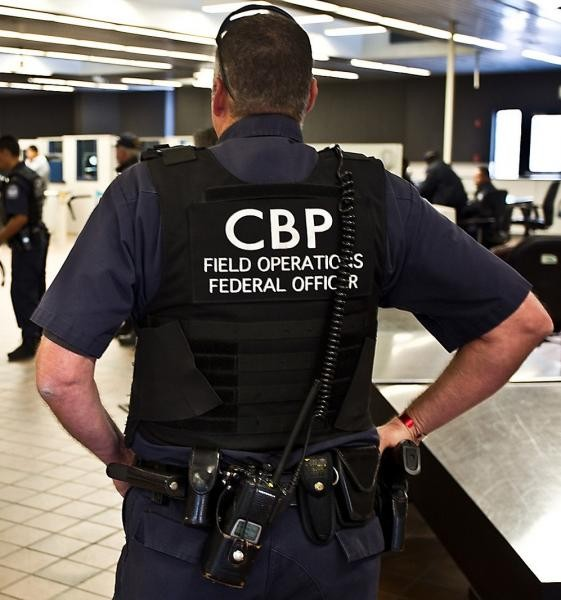Federal prosecutors in the Southern District of California filed 83 border-related cases this week, including charges of bringing in aliens for financial gain, reentering the U.S. after deportation, and importation of controlled substances.
The U.S. Attorney’s Office for the Southern District of California is the fourth-busiest federal district, largely due to a high volume of border-related crimes. This district, encompassing San Diego and Imperial counties, shares a 140-mile border with Mexico.
It includes the San Ysidro Port of Entry, the world’s busiest land border crossing, connecting San Diego (America’s eighth largest city) and Tijuana (Mexico’s second largest city).
In addition to reactive border-related crimes, the Southern District of California also prosecutes a significant number of proactive cases related to terrorism, organized crime, drugs, white-collar fraud, violent crime, cybercrime, human trafficking and national security. Recent developments in those and other significant areas of prosecution can be found here.
On June 14, Guillermo Navarro Cinco and Daniel Vazquez Mijares, both Mexican citizens and alleged captains of a smuggling boat, were arrested and charged with Attempted Bringing in Aliens for Financial Gain after they were intercepted by the U.S. Coast guard 25 miles off Point Loma.
Librado Lopez Ramirez, who was also aboard the boat and had been previously deported to Mexico, was arrested and charged with Attempted Entry After Deportation.
According to a complaint, Navarro Cinco and Vazquez Mijares attempted to smuggle nine people – including Lopez Ramirez – on a small boat; some passengers said they didn’t know how to swim and feared for their lives as the boat faltered under excessive weight.
On June 17, Erik Quintero Baez, a Mexican citizen, was arrested and charged with Importation of a Controlled Substance.
According to a complaint, when the defendant attempted to cross the border in his tractor-trailer at the Otay Mesa Port of Entry, Customs and Border Protection Officers found three 20-liter jugs containing 167 pounds of liquid methamphetamine concealed in the cab.
On June 18, Jose Julian Ugalde Ramos and Luis Adrian Carrillo Sandoval, Mexican citizens, were arrested and charged with Deported Alien Found in the United States.
According to a complaint, Border Patrol agents found the defendants hiding in large bushes less than a mile north of the U.S.-Mexico border.
Also recently, a number of defendants with criminal records were convicted by a jury or sentenced for border-related crimes such as illegally re-entering the U.S. after previous deportation. Here are a few of those cases:
On June 20, Alejandro Arellano-Mejia, a Mexican national who was previously convicted of felony attempted murder, was sentenced to 15 months in custody for re-entering the U.S illegally. In 2014, a Frenso jury found Arellano-Mejia guilty of attempted murder for shooting another man in the chest with a shotgun following an altercation at an outdoor gathering.
On June 20, Baltazar Mendoza-Giron, a Mexican national, was sentenced to 15 months in custody for illegally re-entering the United States. Part of his sentence was imposed for violating supervised release after a 2024 conviction for illegal reentry. Mendoza-Giron also has previous convictions for harassment, for attempting to elude a pursuing police officer in a vehicle, and for criminally negligent homicide.
On June 20, Alejandro Arellano-Mejia, a Mexican national who was previously convicted of attempted murder with a deadly weapon, was sentenced to 15 months in custody for illegally reentering the U.S.
On June 20, Josue Roberto Suarez Ruiz of Honduras and Jesus Ernesto Peinado Armenta of Mexico were sentenced to 14 months and 12 months and one day, respectively, for transporting undocumented immigrants in an incident that became a high-speed chase.
The defendants failed to stop for Border Patrol agents and were ultimately apprehended after fleeing the vehicle and attempting to hide near trash cans on residential properties.
On June 20, Victor Armando Pena was sentenced to 12 months and one day in custody for illegally reentering the United States.
After serving a 17-year sentence for attempted murder with an enhancement for committing the act while actively participating in a criminal street gang, he was removed to Mexico on January 17, 2025, only to return illegally less than two weeks later on January 30, 2025. He was arrested by Border Patrol in Imperial Beach after he had illegally entered the U.S. via Jet Ski.











